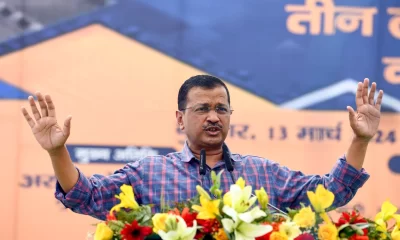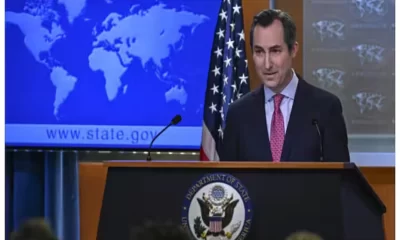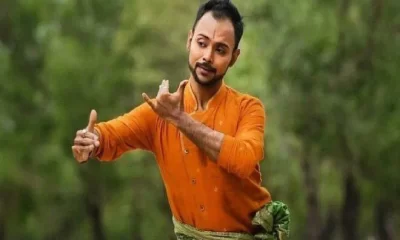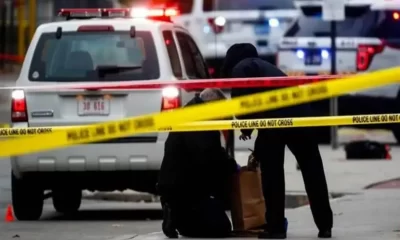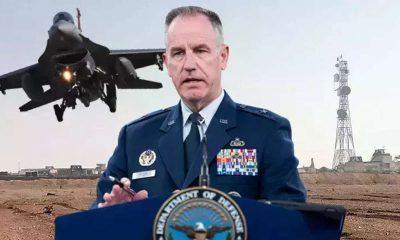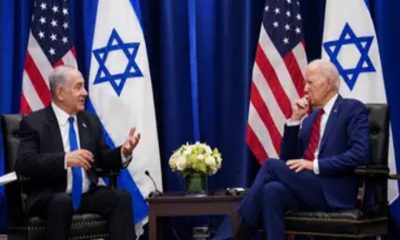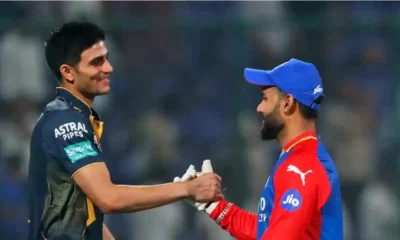Latest world news
Russia MP warns of tit-for-tat steps if US strike Syria

US envoy at UN: Washington was ready to “respond” to the attack regardless of whether the Security Council acted or not
An escalating war of words has broken out between Moscow and Washington over a suspected chemical attack at Douma in Eastern Ghouta. Russia has on Tuesday asserted that it will take all political, diplomatic and military retaliatory measures if necessary should the United States deliver a strike on Syria.
According to Russian official news agency TASS, Vladimir Shamanov, the Chairman of Russian State Duma Defense Committee and former Commander-in-Chief of the Russian Airborne Troops has said, “The politics of double standards have hit rock bottom. And here the United Russia party conscientiously states that all political, diplomatic and military measures if necessary will be taken. No illegal action will remain unanswered.” He was addressing a plenary meeting of State Duma (the parliament).
Read More: Syria: Conflicting reports of Chemical weapons used in Douma
The senior MP was indignant over US President Donald Trump’s statement about Washington’s response within 48 hours, saying: “They should not pin their hopes on their naval task forces and their deceptions. We are a sovereign country and we have allies and guarantors for those events taking place in Syria. We won’t let the Americans hammer nails on someone else’s anvil.”Meanwhile Dimitry Peskov, the Russian Presidential Spokesman told reporters on Tuesday that Moscow will not give in to the Western countries pressure and change its policies.
Russia does nothing under pressure. Russia always acts in line with its interests,” he said, adding that President Vladimir Putin had pointed it out many times.
Read More: Syria declares victory against terror in Eastern Ghouta
Earlier on Monday, escalation in war of words had broken out between Moscow and Washington at UNSC emergency session over a suspected chemical attack in Douma.
The US, Britain, France and six other countries requested Monday’s emergency session after rescue teams and medics said a “poisonous chlorine gas attack” in Douma on Saturday killed dozens of people, including many children and women.
The Syrian government of President Bashar al-Assad and its ally Russia have called the allegations “fabrications”.
Read More: Syrian forces clear 90 per cent of Eastern Ghouta
Nikki Haley, the US ambassador to the UN, told the member states that Washington was ready to “respond” to the attack regardless of whether the Security Council acted or not. “We have reached the moment when the world must see justice done,” she was quoted saying.
“History will record this as the moment when the Security Council either discharged its duty or demonstrated its utter and complete failure to protect the people of Syria,” she added. “Either way, the United States will respond.”
Earlier, Vassily Nebenzia, Russian Ambassador at UN had called the chemical attack allegations “fake news” and said Russia was ready to fly weapons’ inspectors to the site to see for themselves.
Warning that any military action against Syria’s government could have “grave repercussions”, the Russian ambassador also accused US, France and Britain of “hawkish rhetoric” and “boorishness against my country”, adding that their lack of a clear strategy for Syria was “appalling”.
Meanwhile, Staffan de Mistura, the UN envoy to Syria, issued an urgent call for unity and action at the emergency meeting. “I urge the Security Council, in accordance with its own mandate, to maintain international peace and security and uphold international law to, for God’s sake, ensure a mechanism is found to investigate this allegation and attribute responsibilities.”
In a related development, Reuters, quoting US government sources, has reported that an initial assessment has not determined whether a reported chemical attack in Douma was carried out by Syrian government forces.
The assessment also suggested that a nerve agent was used in the suspected poison attack, but further evidence was needed to determine the type of agent.
Latest world news
World Earth Day 2024: Google Doodle showcases aerial view of planet’s natural beauty
Google celebrated Earth Day 2024 with a special doodle featuring an aerial view of our planet’s biodiversity.
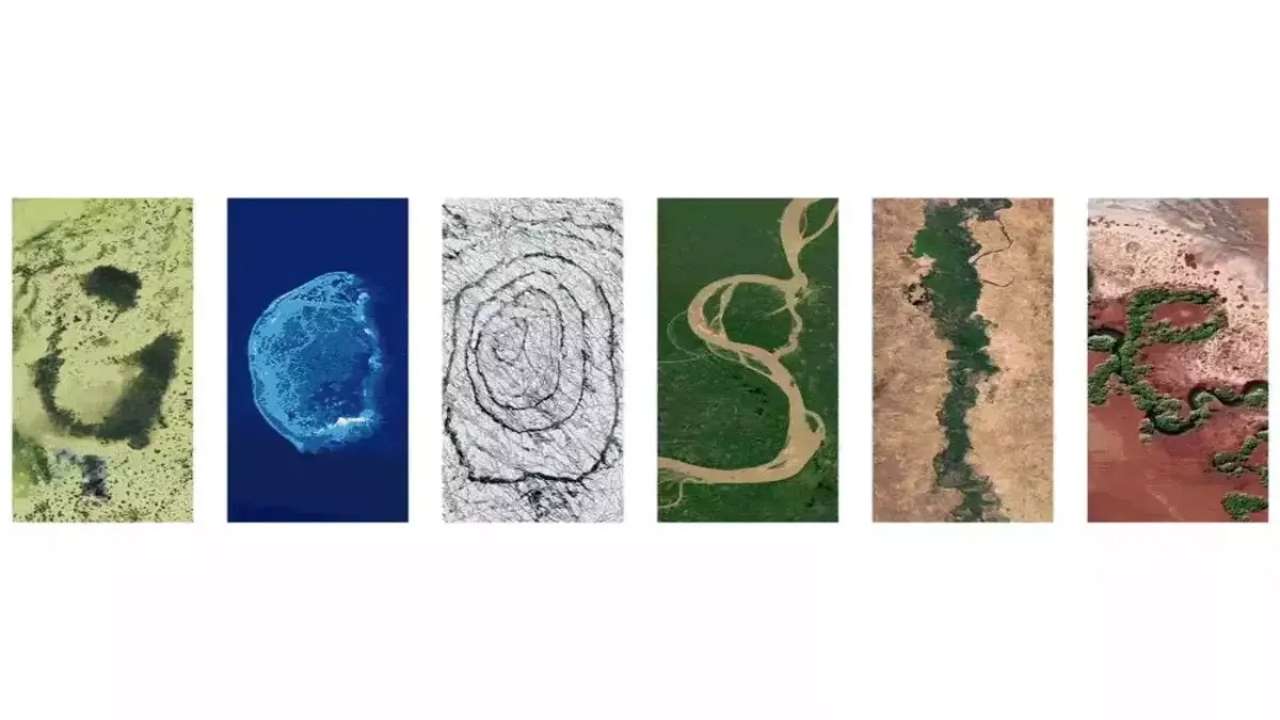
Google shared a doodle today to celebrate World Earth Day 2024, which showcased aerial photos of the planet’s biodiversity and natural beauty. Google reminded us of the importance of protecting planet earth for future generations with the help of this doodle.
The Google letters depict specific locations across the globe where people, communities, and governments work every day to help protect the planet’s natural beauty, biodiversity, and resources, according to the explanation of the annual Earth Day 2024 doodle on their website.
It said, these examples remind us that there’s much more to do to address the climate crisis and biodiversity loss, but also offer the promise of hope and optimism.
The islands of Turks and Caicos are represented by the letter “G.” The islands’ conservation efforts are concentrated on protecting important regions for biodiversity and addressing persistent environmental problems.
The largest reef in the southern Gulf of Mexico and a UNESCO biosphere reserve, Scorpion Reef National Park, is represented by the letter “O” in the Mexican flag.
The letter “O” features Iceland’s Vatnajokull National Park, which was designated as a national park in 2008 following decades of advocacy. The ecology within and surrounding the biggest glacier in Europe is safeguarded by this UNESCO World Heritage Site.
The letter “G” has the Jau National Park in Brazil on it. It is a UNESCO World Heritage Site and one of the biggest forest reserves in South America.
The Great Green Wall of Nigeria is represented by the letter “L,” and the Pilbara Islands Nature Reserves of Australia are represented by the letter “E.”
Meanwhile, Earth Day is a worldwide event that promotes protection of the environment every year. April 22 serves as a reminder of the importance of conservation efforts and sustainable practices to guarantee a healthier world and a brighter future.
The occasion inspires people across the world to come together and take action to protect the environment, strengthening our bonds with nature and promoting good change.
Latest world news
Bigg Boss 14 contestant Rahul Vaidya struggles walking in knee deep water, compares Dubai rains with Mumbai floods
Singer and TV personality Rahul Vaidya was recently stranded in the Dubai rains.

Rahul Vaidya, who was in Dubai ahead of his show which was scheduled to take place today, left the country due to heavy rains and reached Kolkata. The artist shared on social media his encounters in the UAE city, including challenges like walking through knee-deep water. Rahul provided an update regarding the heavy rainfall in Dubai on his Instagram profile.
The Bigg Boss 14 contestant revealed that he was in Kolkata and prepared to do an evening performance. Recalling the terrifying period he went through, Vaidya said there was a lot of confusion and panic in Dubai. The situation was similar to that when heavy floods hit Mumbai in 2005.
Vaiday also posted seval other images and videos of cars that were underwater and flooded roadways. The Bigg Boss 14 contestant, who shared his ordeal, claimed that even though it had just rained for two hours, the situation was dire.
In one of the video, which went viral he can be seen struggling in walking in knee-deep water. He can be also seen holding his sneakers in one hand and with other hand he was seen managing other things.
This is the result of the two hours of rain that it had, he can be heard saying in the video. Vidya also said he dosen’t believe Dubai is accustomed to a lot of rain. Everything had stopped working, he remarked.
After taking part in the first season of the singing reality show Indian Idol, Rahul Vaidya gained widespread recognition. In addition to Bigg Boss, he took part in Khatron Ke Khiladi 11.
Meanwhile, heavy rains that triggered flooding in the UAE and Bahrain, which left 18 people dead in Oman on Sunday and Monday, have paralyzed the financial hub of the Middle East, Dubai.
A lot of incoming flights were diverted from Dubai’s international airport because of the rain. At 7:26 p.m., the busiest airport in the world for foreign visitors stopped accepting new arrivals; a gradual resumption was announced for more than two hours later.
Images of planes navigating flooded tarmacs are making the rounds on social media.
According to pictures shared on social media, the flagship malls Dubai Mall and Mall of the Emirates both experienced heavy floods, while at least one Dubai Metro station had water up to the ankles.
There were several road collapses, severe flooding in residential areas, and numerous reports of leaks from windows, doors, and roofs.
Due to the unfavourable weather, schools around the United Arab Emirates were forced to close, and as more storms are predicted, the closures are anticipated to last until Wednesday. The government of Dubai allowed its staff to work remotely till this Wednesday.
Latest world news
Dubai sky turns green during storm in UAE, video goes viral
The UAE witnessed record-breaking rainfall on Tuesday and the National Centre of Meteorology recorded 254 mm of rainfall in less than 24 hrs in the Khatm Al Shakla area in Al Ain.

1 person was killed in UAE as it witnessed heavy rainfall on Tuesday, stranding commuters, flooding roads, disrupting trains and flights and resulting in water leakage from mall ceilings. The UAE witnessed record-breaking rainfall on Tuesday and the National Centre of Meteorology recorded 254 mm of rainfall in less than 24 hrs in the Khatm Al Shakla area in Al Ain. It is being said that the rainfall was the highest documented since the start of data collection in 1949.
The heavy rainfall in UAE came days after a similar situation in neighbouring Oman, where 13 people were killed in flash floods. Many parts of Oman saw torrential rains, which caused students to be trapped in buses and swept away motorists and trapped people in their homes.
Videos from Dubai circulating on social media showed widespread waterlogging on roads in Abu Dhabi, Dubai and other important cities. This left daily commuters in cars and other vehicles struggling to get back home. Dubai metro station too was seen flooded and closed.
One such video circulating on social media shows the aerial view of the city of Dubai from the top of a building. In the video the stormy winds are seen blowing over the city of Dubai. As the storm intensifies the Dubai sky turns green and ultimately gets covered by heavy rainfall. The video has gone viral on social media with more than 1.1 million views.
Another video showed water leakage from the ceilings of shopping malls, flooding the floors and destroying goods. A video which was shot in the famous Mall of the Emirates, showed pieces of ceiling falling as the rainwater gushed inside. Videos from many outlets of the Deira City Centre mall chain showed escalators being rendered unusable. Majid Al Futtaim, the company which owns the Mall of Emirates, said that the shopping complexes have been kept open and the customers are being sent away from the flooded areas.
-
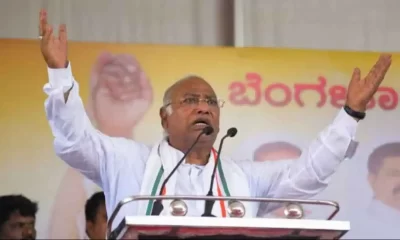
 2024 Lok Sabha Elections16 hours ago
2024 Lok Sabha Elections16 hours agoMallikarjun Kharge vows to continue politics till his last breath to defeat BJP
-
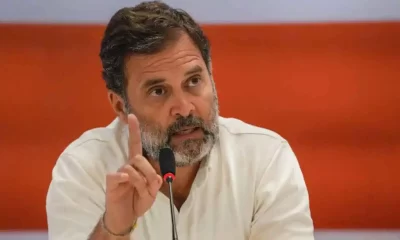
 2024 Lok Sabha Elections23 hours ago
2024 Lok Sabha Elections23 hours agoRahul Gandhi clarifies on wealth survey remark, says aim is to identify injustice
-
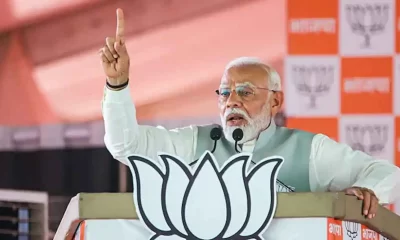
 2024 Lok Sabha Elections19 hours ago
2024 Lok Sabha Elections19 hours agoPM Narendra Modi slams Congress over Sam Pitroda’s inheritance tax remarks, accuses Congress of intending to impose higher taxes
-
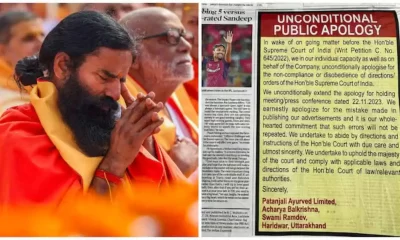
 India News22 hours ago
India News22 hours agoRamdev, Balkrishna publish bigger apology in newspapers after Supreme Court’s rap
-

 Entertainment18 hours ago
Entertainment18 hours agoMadhuri Dixit, Karisma Kapoor recreate Dil To Pagal Hai dance battle on Dance Deewane
-
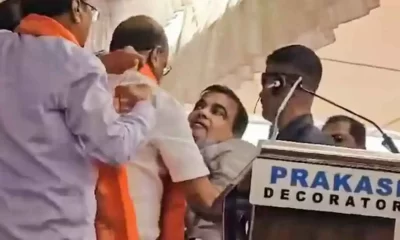
 2024 Lok Sabha Elections17 hours ago
2024 Lok Sabha Elections17 hours agoNitin Gadkari says he’s better now after collapsing at election rally in Maharashtra’s Yavatmal
-
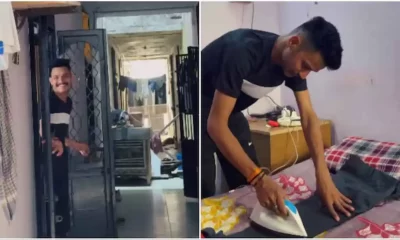
 Trending21 hours ago
Trending21 hours agoA waiter’s life: Social media users go emotional on watching viral video
-

 India News18 mins ago
India News18 mins agoTamannaah Bhatia summoned in illegal IPL streaming app case, to appear before cyber cell on April 29

